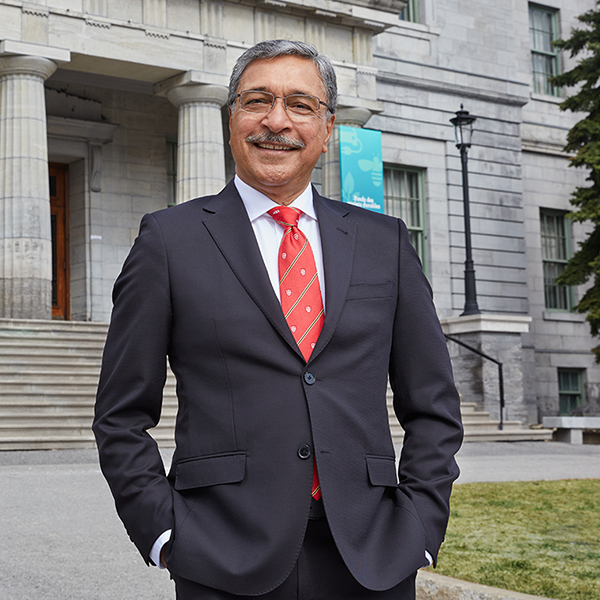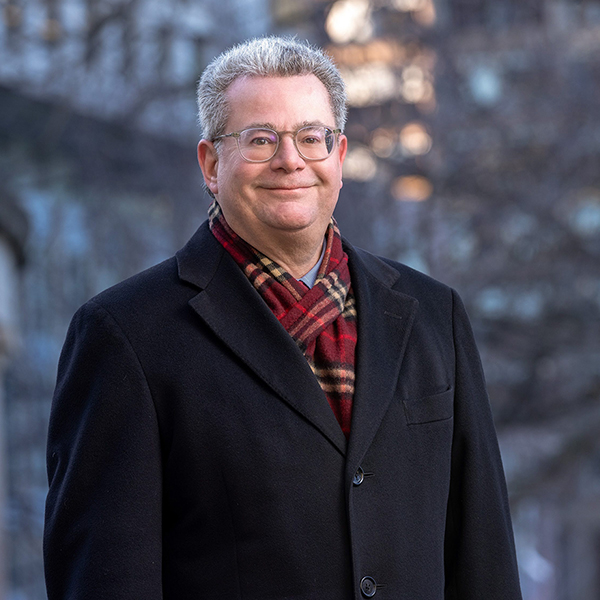As we reach the one-year anniversary of McGill’s transition to remote learning, what do you believe will be the lasting effects, if any, on higher education?
For the past year, McGill’s activities and services have been offered online to ensure the safety of our community. With our academic, professional and personal lives seeming to intermingle, working and learning remotely have brought a unique set of challenges that have tested our resilience. At the same time, we have seen how periods of upheaval can create opportunities for reimagining our lives. With our normal activities up for reassessment, we have learned many lessons that will have an enduring impact.
This period has underscored the value of belonging to a community. An important part of the university experience involves meeting new people, including classmates, professors, and mentors from around the world. The chance meetings with peers between classes, the lunches shared outdoors or the friendly sports matches played on Lower Field cannot be replicated on Zoom. Our community will likely emerge from this experience with a renewed appreciation for face-to-face interactions and the importance of human relationships.
I also foresee that universities, in general, will continue exploring remote learning options, leveraging the features of new technologies to their full potential. Courses that were once offered exclusively in person might instead integrate some online components, creating the opportunity for increased flexibility and dynamic experiences for learners.
We have also seen how remote learning can bring advantages for students, as a function of where they are in their academic journeys. For those who pursued upskilling and reskilling during the pandemic while balancing the demands of a career and family, virtual classes brought many benefits. From greater schedule flexibility to improved collaboration with students from around the world, technology helped bring people into our learning environment who could not have otherwise participated. Increasing access to education will continue to be a priority, especially as the need for lifelong learning becomes more pronounced across workplaces.
What characteristics do you think will distinguish the ‘COVID cohort’?
Without a doubt, the past year has been very challenging for students. I am inspired by their remarkable flexibility and creativity as they adapted to new ways of learning and collaborating with peers virtually, all while sharpening their digital skills considerably. I know that this experience, albeit unimaginably difficult, will instill in them the confidence and resourcefulness to overcome future crises. I also believe that the pandemic has imparted important lessons on humanity and humility to all of us, which will positively influence how we see ourselves as members of our local and global communities.
This March also marks the launch of McGill’s Bicentennial Anniversary. Has the pandemic shaped how McGill will position itself for its third century?
McGill’s Bicentennial Anniversary occurs at a time when we continue to navigate the disruption caused by the pandemic. In this context, we have a unique opportunity to reflect on the University’s future – and there are many reasons to believe that we can make it a bright one.
The past year revealed the extent to which our world is interconnected and that overcoming complex challenges requires collaboration across nations and disciplines. With other global issues looming – such as climate change, human migration and resource imbalances – we know that COVID-19 will not be the last crisis that our society will face.
At the same time, we have witnessed the incredible feats that can be achieved through open collaboration and collective action. On a global level, this enabled the development of the COVID-19 vaccines in record speed; on a local level, at McGill, it allowed us to reconfigure our operations rapidly to keep our community safe while continuing to learn and work.
Sustaining this collaborative spirit and honing our ability to problem solve will be essential as we prepare for our next century. In doing so, the United Nations’ 17 Sustainable Development Goals (SDGs) stand as important guideposts.
As I reflect on the last year, it is clear that, even amid trying times, McGill’s community remains open, connected and purposeful. With our sights set on the future, we will draw from the lessons of the pandemic to usher in a period of reimagined and revitalized learning and knowledge creation.

